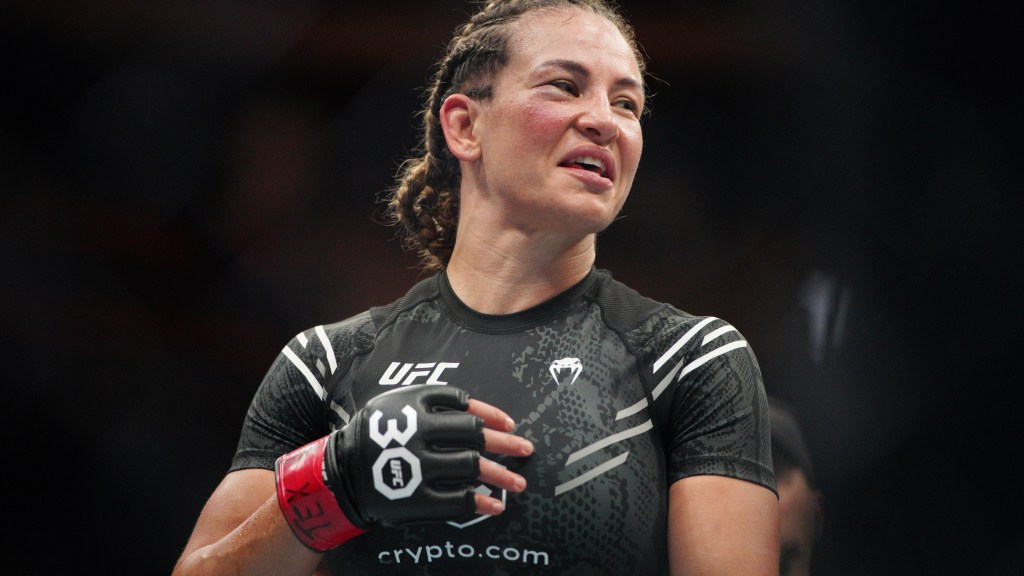Miesha Tate has made it to the top of the mountain, so to speak, and like most people who have been there, she has experienced what it's like to come down when you're not ready.
Tate defeated Holly Holm to win the UFC women's bantamweight title in 2016. A few months earlier, Holm had defeated Tate's biggest rival, Ronda Rousey, to win the belt, and like Holm, Tate lost the title in her first defense against Amanda Nunes.
As a perfect testament to how emotions can go up and down in this sport, Tate experienced the highs of submitting Holm and briefly reigning as champion, then the lows of losing the belt, and now, a few years later, she can savor a sliver of emotional victory knowing she lost it to the woman considered the pound-for-pound GOAT. She's been up, she's been down and she's been in between.
And certainly, Tate said, it can have a negative impact on a fighter's mental health.
“It's like a mental peace of knowing there's more to life than just winning and losing,” Tate recently told MMA Junkie Radio. “I want to go beyond that, transcend that, and be more than just defined by that. That's what I was really hung up on. If you've seen 'The Weight of Gold,' I recommend you check it out because it's a really incredible documentary about how Olympians dedicate their lives to this career.”
“Then nobody cares, and then what happens? Nobody really pays attention unless you win the gold medal. Even with a silver medal, sometimes it's very, very close, but it's like, 'Well, it was a silver medal. We only care about the gold medal.' If we raise our kids to think that way or allow ourselves to think that way, then we are only as good as our last win or our last loss.”
It may have been a slow process for Tate, now a mother of two, who retired in 2016 before returning in 2021.
After two decision losses, she submitted Julia Avila in December and earned herself a $50,000 bonus, but in the second phase of her career, she may be thinking differently.
“If you win, you're a winner. If you lose, you're a loser. That's not a good way to live,” Tate says. “It can make you suicidal. You get so caught up in the sport that you think, 'Look, I lost last time. I've got to win,' but that's very shortsighted. What happens if I don't win the next game? What if you're burying yourself? What if you're digging a hole? What if you're burning the candle at both ends and in the middle? Eventually you'll burn out.”
“I think the reason athletes suffer from mental illness, depression and suicidal thoughts is because they focus so much on the outcome that they forget that effort is more important than the result. As a society, we don't really accept that mindset, so it's going to take a bit of a cultural change.”
“I hope that people who play sports can at least understand that there's more to sports, there's more to life. There's life after sports. You have to learn to have a little balance so that you can have your own value and greatness beyond just your sport.”
Be sure to visit the MMA Junkie Instagram page and YouTube channel to discuss this and other content with fellow mixed martial arts fans.

